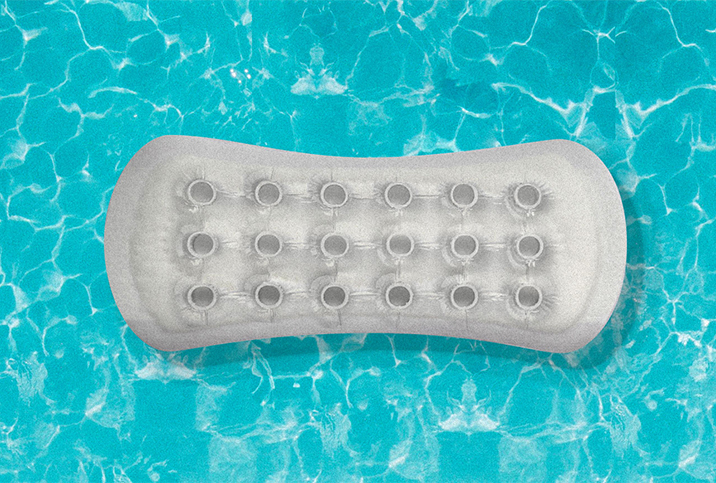Menstruation: Myths & Misconceptions

Conflicting information about menstruation can cause all kinds of confusion, as well as a variety of problems, among them discrimination against women, and women and girls not knowing how a normal and healthy period should look and feel.
Below, we highlight some of the more common myths about menstruation and present the information necessary to debunk them.
Myth: Periods are always heavy and painful.
Reality: It’s not unusual for flow to be heavy during the first few days of one’s period and then taper off toward the end. Some discomfort in the form of cramps is also normal and can typically be managed with an over-the-counter painkiller.
If your periods are abnormally heavy or cause debilitating pain, however, something may be wrong. You shouldn’t have to deal with extreme pain for three to seven days each month, and an abnormally heavy period can be an indication that a trip to your OB-GYN is necessary to provide answers.
Myth: Tampons take my virginity.
Reality: Inserting a tampon can cause one’s hymen to stretch and maybe even tear, but that does not claim one’s virginity.
The hymen, which comes in many shapes and sizes, is a piece of tissue that partially covers the vaginal opening. Some women are even born without one. Your hymen can tear during intercourse, but it can also wear down or break during physical activity or when inserting a tampon.
Myth: I can’t get pregnant if I have sex during my period.
Reality: Though a pregnancy resulting from period sex is unlikely, a woman can still get pregnant, depending on her cycle.
There’s no harm in having sex while you’re on your period, but sperm can survive in the vagina for up to 10 days, meaning it may still be alive when you start ovulating, especially if you have a short or irregular cycle. If the sperm manage to survive, you can get pregnant.
It’s best to assume that no day is safe from pregnancy unless some form of contraceptive is used.
Myth: Premenstrual syndrome is all in my head.
Reality: Premenstrual syndrome (PMS) is real and affects 90 percent of women, causing many of them to feel on edge.
The week before your period begins, you may feel yourself becoming more emotional and even short-tempered. Your hormones are increasing, which, for some women, can result in mood swings and irritability. Additional symptoms of PMS include cramps, cravings for sweet or salty foods, bloating, constipation, diarrhea, acne breakouts, sensitive or sore breasts, fatigue, anxiety and depression.
Myth: It’s not safe to swim while menstruating.
Reality: Though some women may try to avoid swimming during the heaviest days of their period, there are no health reasons why you can’t swim while you’re on your period.
Some women may be uncomfortable swimming while on their period, especially if they’re afraid of a leak. But there are ways to solve this problem, including using a menstrual cup, a tampon or a menstrual disc.
If you’re a frequent swimmer, long-term forms of birth control such as an IUD or birth control pills can safely stop your period, so you don’t have to worry about leaks while swimming or bathing.
Knowing the truth about menstruation benefits men and women alike. Women should be unashamed of a perfectly natural bodily function, and men should aspire to be understanding and supportive. Understanding how to debunk misconceptions will allow you to educate others and hopefully remove any stigma attached to menstruation.


















